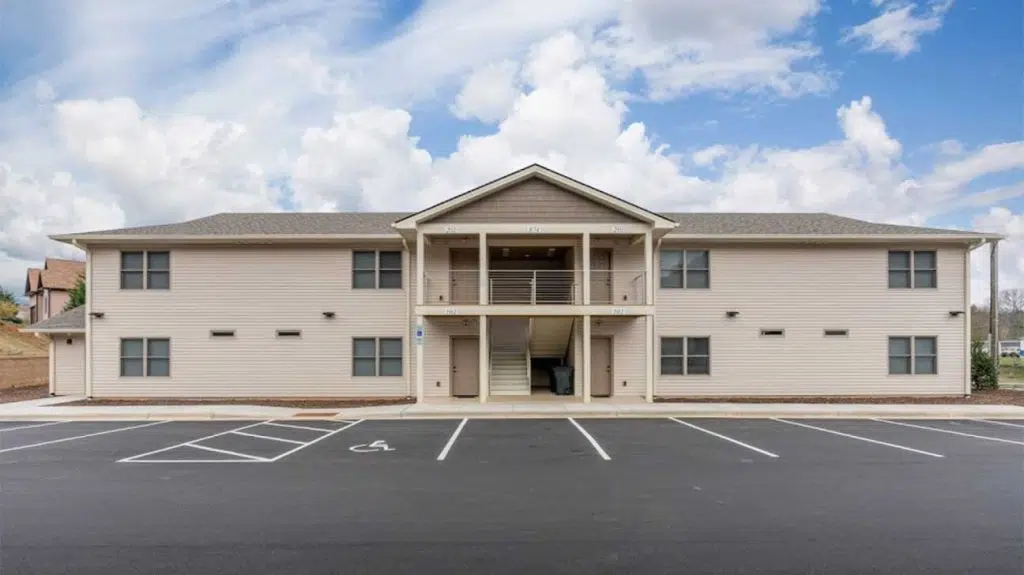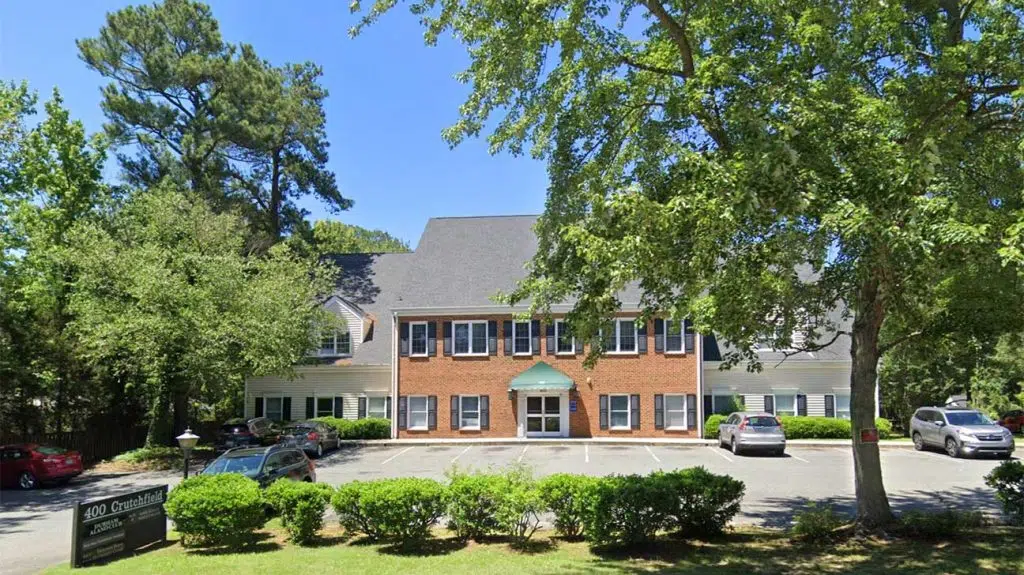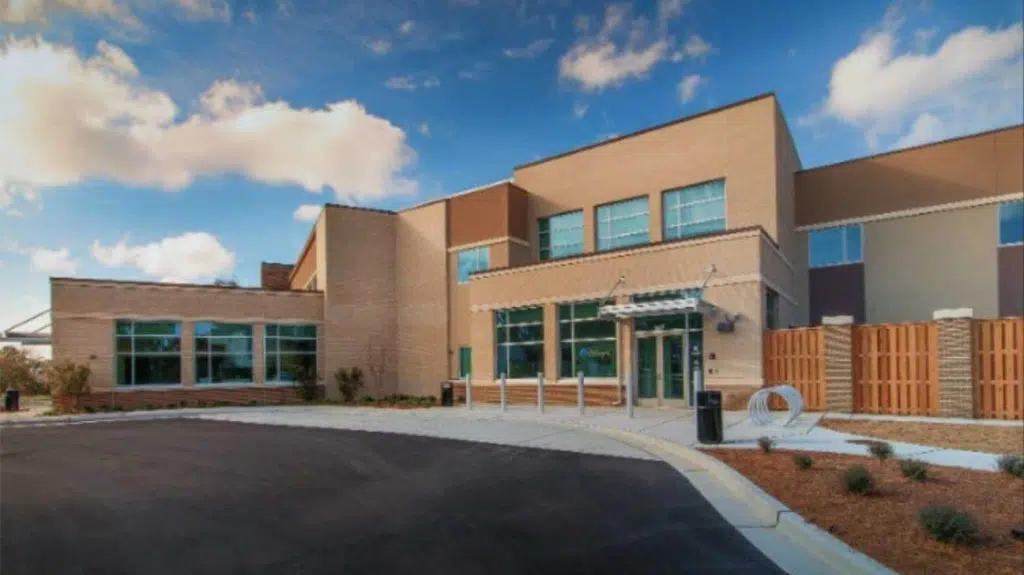
Several North Carolina rehab centers offer long-term recovery programs for people with a severe substance use disorder or a co-occurring disorder that complicates recovery.
These addiction treatment programs are different from outpatient treatment, because they involve inpatient care for an extended time period that can last up to 60 or 90 days, or even longer.
List Of North Carolina Long-Term Drug Rehab Centers
Below is a list of long-term addiction treatment centers in North Carolina that have been vetted for quality by considering accreditations, memberships, and Google ratings, among other factors.
1. Crest View Recovery Center, Asheville, North Carolina
Crest View Recovery Center is among the rehab facilities in Asheville, NC, that offer recovery through a residential treatment program that lasts at least 90 days.
Their program is geared toward clients who need more time in rehab due to the severity of their drug addiction.
They offer evidence-based therapy plus access to detox services if you need them. They also facilitate exercises, activities, and nutritional guidance to prepare you for life outside of rehab.
They are accredited by the Joint Commission, and they have a 4.5-star rating on Google.
Location and contact information:
90 Asheland Ave.
Asheville, NC 28801
(866) 350-5622
2. Daymark Recovery Services Guilford Residential Center, High Point, North Carolina
The Guilford Residential Center is the long-term treatment arm of Daymark Recovery Services, a treatment center near Winston-Salem, NC.
This CARF-accredited facility provides long-term treatment for adults who need individual and group therapy with educational services and the development of coping mechanisms.
The minimum stay is 30 days, but many treatment plans involve longer-term recovery in order to achieve a life of sobriety. The Guilford Residential Center has a 3.7-star rating on Google.
Location and contact information:
5209 West Wendover Ave.
High Point, NC 27265
(336) 899-1550
3. Freedom House Recovery Center, Durham, North Carolina
This recovery center in Durham, NC, offers long-term treatment for adults, young adults, adolescents, and children.
This includes evidence-based therapy as well as family therapy over the course of the extended stay to prepare you for lasting recovery. They also offer detoxification services and aftercare.
They are accredited by the Commission on Accreditation for Rehabilitation Facilities (CARF), and they have a 4-star rating on Google.
Location and contact information:
400-D Crutchfield St.
Durham, NC 27704
(919) 251-8806
4. Wilmington Treatment Center, Willmington, North Carolina
This drug and alcohol rehab center in Wilmington, North Carolina, offers individualized treatment plans.
Your treatment program length will be based on how severe your substance use disorder is, the need for dual diagnosis treatment, and available coverage from your health insurance provider.
They offer 24-hour medical supervision and their programming can extend up to seven days a week. They are accredited by the Joint Commission and the American Society of Addiction Medicine.
Location and contact information:
2520 Troy Dr.
Wilmington, NC 28401
(800) 992-3671
What To Expect During Long-Term Addiction Treatment In North Carolina
The first thing you can expect is an extended stay that will last longer than the usual thirty-day treatment program.
According to the Substance Abuse and Mental Health Services Administration (SAMHSA), North Carolina trails slightly behind national percentages with 14% of people 12 and up using illicit drugs.
This makes long-term treatment an important consideration.
Comfort And Amenities
Long-term rehab programs usually address severe substance abuse and can last as long as 60 or 90 days.
When you’re in a rehab program for that period of time, you can usually expect the treatment center to offer amenities to make your stay more comfortable.
These amenities can include:
- fitness center or access to other activities
- spacious grounds
- designated days for the family to visit
- comfortable living arrangements
Treatment Approaches
Rehab centers that offer long-term treatment options also provide many of the approaches that you would find in short-term residential treatment or outpatient programs.
Some of these approaches can include:
- evidence-based therapeutic modalities such as cognitive behavioral therapy
- support groups
- transitional support and aftercare
- wellness training
- relapse prevention
Some inpatient treatment centers even provide healthcare advice or access during your stay, including things like medication management.
FAQs For Long-Term Drug And Alcohol Treatment Facilities In North Carolina
If you still have questions about long-term treatment in North Carolina, consider answers to the frequently asked questions below.
Does Health Insurance Pay For Long-Term Drug Treatment?
Yes, sometimes it does. This depends on your health insurance provider and whether the treatment center in question works with private insurance, Medicaid or Medicare.
Is Long-Term Drug Rehab The Most Effective Treatment For Drug Abuse?
It can be, especially if you have had multiple relapses. However, it is not always necessary.
Speak with a treatment provider or your primary care provider to determine the appropriate program length for your needs.
Is Long-Term Addiction Treatment More Successful If Family Visits?
It can be very helpful if your family shows support while you are gone for an extended period of time.
Find Long-Term Addiction Recovery In North Carolina
If short-term or outpatient addiction treatment programs have not worked for your recovery, don’t give up.
You can find lasting recovery through long-term treatment programs in North Carolina, and sometimes even in your region or city.
If you or your loved one needs treatment for drug or alcohol addiction, call our helpline today.
Updated on November 13, 2023
Addiction Resource aims to provide only the most current, accurate information in regards to addiction and addiction treatment, which means we only reference the most credible sources available.
These include peer-reviewed journals, government entities and academic institutions, and leaders in addiction healthcare and advocacy. Learn more about how we safeguard our content by viewing our editorial policy.
- Substance Abuse and Mental Health Services Administration
https://findtreatment.gov/ - Substance Abuse and Mental Health Services Administration
https://www.samhsa.gov/data/sites/default/files/NSDUHMetroBriefReports/NSDUHMetroBriefReports/NSDUH-Metro-Raleigh.pdf



